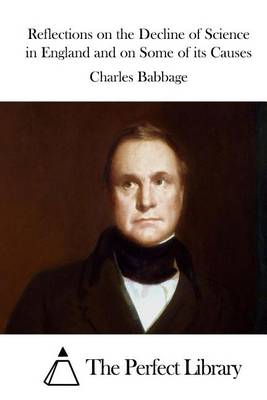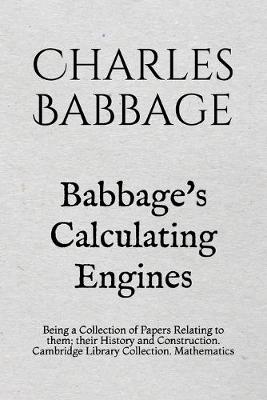Cambridge Library Collection - Mathematics
3 total works
Reflections on the Decline of Science in England and on Some of its Causes
by Charles Babbage
Published 17 June 2004
The mathematician Charles Babbage (1791-1871) was one of the most original thinkers of the nineteenth century. In this influential 1830 publication, he criticises the continued failure of government to support science and scientists. In addition, he identifies the weaknesses of the then existing scientific societies, saving his most caustic remarks for the Royal Society. Asserting that the societies were operated largely by small groups of amateurs possessing only superficial interest and knowledge of science, Babbage explores the importance of the relationships between science, technology and society. Exposing the absence of a true scientific culture, he states, 'The pursuit of science does not, in England, constitute a distinct profession, as it does in other countries.' These concerns found favour with many, influencing reforms of the Royal Society and leading to the founding of the British Association.
Memoirs of the Analytical Society
by Charles Babbage and Sir John Frederick William Herschel
Published 26 September 2013
By the end of the eighteenth century, British mathematics had been stuck in a rut for a hundred years. Calculus was still taught in the style of Newton, with no recognition of the great advances made in continental Europe. The examination system at Cambridge even mandated the use of Newtonian notation. As discontented undergraduates, Charles Babbage (1791-1871) and John Herschel (1792-1871) formed the Analytical Society in 1811. The group, including William Whewell and George Peacock, sought to promote the new continental mathematics. Babbage's preface to the present work, first published in 1813, may be considered the movement's manifesto. He provided the first paper here, and Herschel the two others. Although the group was relatively short-lived, its ideas took root as its erstwhile members rose to prominence. As the society's sole publication, this remains a significant text in the history of British mathematics.
The famous and prolific nineteenth-century mathematician, engineer and inventor Charles Babbage (1791-1871) was an early pioneer of computing. He planned several calculating machines, but none was built in his lifetime. On his death his youngest son, Henry P. Babbage, was charged with the task of completing an unfinished volume of papers on the machines, which was finally published in 1889 and is reissued here. The papers, by a variety of authors, were collected from journals including The Philosophical Magazine, The Edinburgh Review and Scientific Memoirs. They relate to the construction and potential application of Charles Babbage's calculating engines, notably the Difference Engine and the more complex Analytical Engine, which was to be programmed using punched cards. The book also includes correspondence with members of scientific societies, as well as proceedings, catalogues and drawings. Included is a complete catalogue of the drawings of the Analytical Engine.


